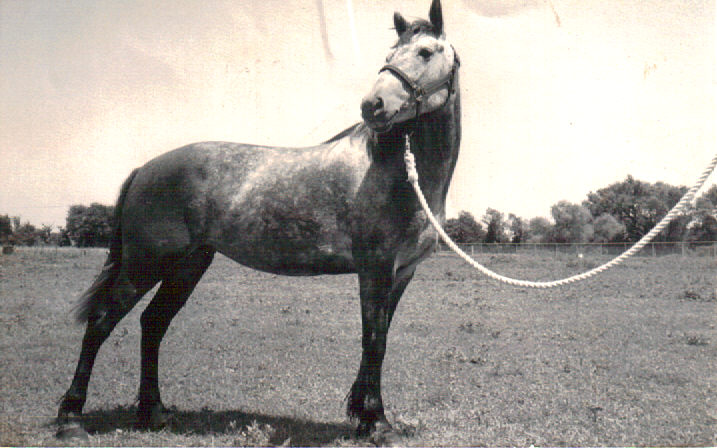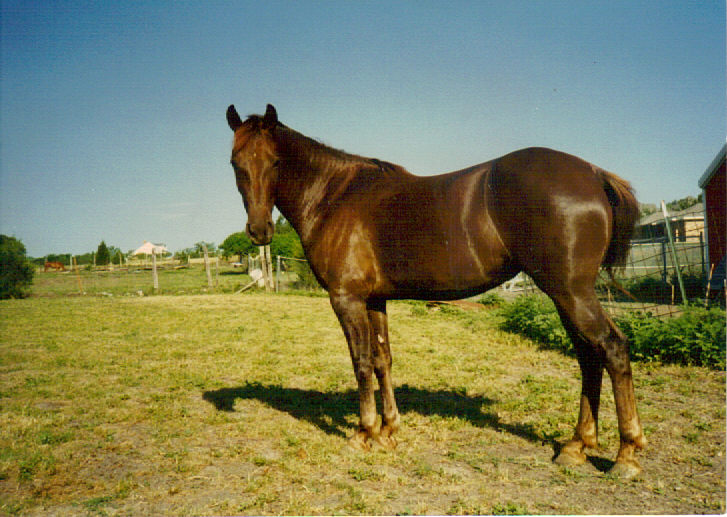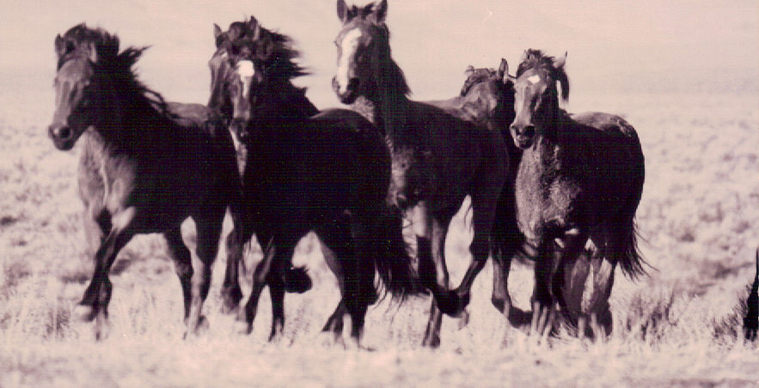The word Mustang comes from the Spanish word mesteno meaning "stray or ownerless" horse. This term aptly describes all wild horses in this country.
Eohippus was the last real wild
horse. A small, dog-sized animal with toes, he settled in the Western
Hemisphere 60 million years ago. The modern horse evolved 3 million years ago
and then disappeared from this hemisphere 10,000 years ago.
The horses returned to America
when explorers Cortes and DeSoto came mounted on magnificent Barbs from Morocco,
Sorraia from Portugal, and Andalusians from Spain.
The Pueblo Indians learned to
ride and passed this skill on to other Indians. In 1680 the Indians revolted
against the Spanish rule and the Spaniards left thousands of horses behind in
their hasty retreat.
The Indians could have rounded
up these horses but chose to let them run wild. It was much easier to raid the
Spanish settlements and steal the horses.
In an effort to stop the Indian
raids the Spanish government shipped a steady flow of mounts to the New World.
It was hoped that the Indians would catch the "wild" horses and leave the
Spaniards alone.
Tens of thousands of the
Spanish-bred horses were herded to the Rio Grande and turned loose in a 200-year
period.
These horses soon met up with
draft horses and cowboy ponies that escaped from the ranchers and farmers
arriving from the East. Their numbers exceeded 2 million by the year
1900.
Ranchers took to killing the
horses to protect the rangeland for their cattle. Fewer than 17,000 horses
remained by the year 1970.
Stating that Mustangs were
"living symbols of the historic and pioneer spirit of the West", Congress passed
the Wild Free-Roaming Horse and Burro Act in 1971.
An estimated 41,000 Mustangs roam public range today but few if any have much original Spanish blood.




